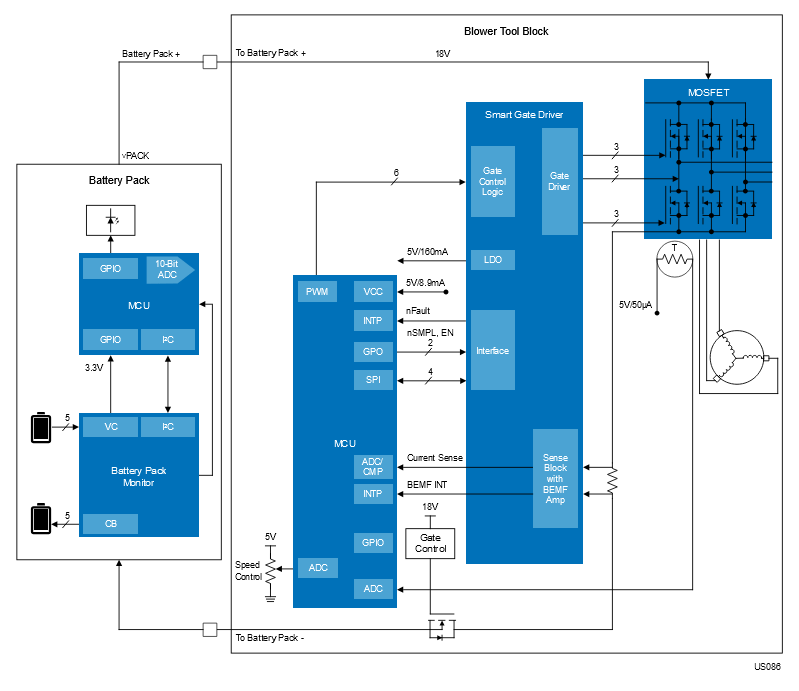Introduction
Cordless gardening tools, such as leaf blowers, have become increasingly popular due to their convenience, portability, and eco-friendliness. However, designing these tools presents unique challenges, particularly in balancing power and battery life. The shift from gas-powered to cordless electric gardening tools is fueled by the demand for quieter, more environmentally friendly, and user-friendly equipment. Cordless leaf blowers offer significant advantages in terms of ease of use and reduced maintenance. However, achieving the right balance between power, battery life, and weight remains a critical challenge for manufacturers. This blog explores the key design challenges and innovative solutions for creating high-performance cordless leaf blowers.
Design Challenges
One of the most significant challenges in designing cordless leaf blowers is balancing battery life with power output. For example, electric leaf blowers can consume between 500W to 1500W, depending on their size and usage, while a typical handheld fan might only use between 5W to 200W. This trade-off necessitates innovative solutions to extend battery life without compromising performance. The weight of the tool is another crucial factor. Larger batteries can provide longer runtime but add to the overall weight, making the tool cumbersome to use and thus negatively impacting the user experience. Manufacturers must find ways to reduce weight while maintaining or even enhancing performance. Efficient charging solutions are essential, especially for users who rely on multiple tools. Quick and convenient charging options can significantly enhance the usability of cordless tools, reducing downtime and improving overall efficiency. While cordless tools are generally quieter than their gas-powered counterparts, further noise reduction is always beneficial, particularly in residential areas. Designing quieter motors and incorporating noise-dampening technologies can enhance user experience. Cordless tools aim to reduce emissions and environmental impact. However, the production and disposal of batteries pose their own environmental challenges. Sustainable battery technologies and recycling programs are essential to reduce these issues.
System Setup and Solutions
To address these challenges, manufacturers are implementing advanced technologies and innovative system setups, an example of which can be seen in the diagram below:

Efficient Motor Control Design
Using brushless DC (BLDC) motors, such as those driven by the Renesas RL78/G1F microcontroller, can significantly enhance efficiency. These motors offer high power output with lower energy consumption, extending battery life without sacrificing performance. A key factor in motor efficiency is how it is being driven by the MCU. With the RL78 MCU, featuring the industry's lowest current consumption, advanced motor control functionality such as rotor position detection helps in optimizing performance and boosting overall efficiency. The system also incorporates a smart gate driver designed for BLDC motor applications. The RAA306012 smart gate driver from Renesas offers high efficiency, accuracy, and superior safety features. It ensures precise control of the motor, enhancing performance, and extending battery life. The smart gate driver works with the MCU to manage the switching of the MOSFETs, ensuring efficient power delivery to the motor.
Advanced Battery Management
The ISL94208 battery management analog front-end (AFE) from Renesas provides comprehensive monitoring and control of battery packs. This technology ensures optimal battery performance, safety, and longevity by accurately managing charge and discharge cycles. Highly configurable and effective battery management products are designed to support consumer battery-driven systems. Developing interchangeable battery packs allows users to quickly swap batteries, minimizing downtime. This modular approach also enables the use of a single battery type across multiple tools, enhancing convenience and reducing costs. With these modular power systems, it's important to be able to monitor various information about the batteries, such as battery life, performance, charge, and discharge status, to ensure optimal functionality and user experience.
System Integration
Incorporating advanced materials and design techniques can reduce the overall weight of the tool. For instance, using lightweight composites and optimizing the tool's design can make it easier to handle without compromising durability. The diagram provided illustrates the integration of these components in a cordless leaf blower system. The battery pack, managed by the ISL94208, supplies power to the BLDC motor controlled by the RL78/G1F microcontroller and the RAA306012 smart gate driver. This setup ensures efficient power management and motor control, resulting in a high-performance, lightweight, and user-friendly cordless leaf blower. The 20V leaf blower offers adjustable speeds to optimize usage and prolong battery life, and the battery can be easily connected to a standalone charging dock.
The evolution of cordless leaf blowers and other gardening tools is driven by the need for more efficient, powerful, and user-friendly solutions. By addressing key design challenges and leveraging advanced technologies, manufacturers can create tools that offer the perfect balance of power, efficiency, and user comfort. To see this and other Winning Combinations from Renesas please visit us at www.renesas.com/win.
